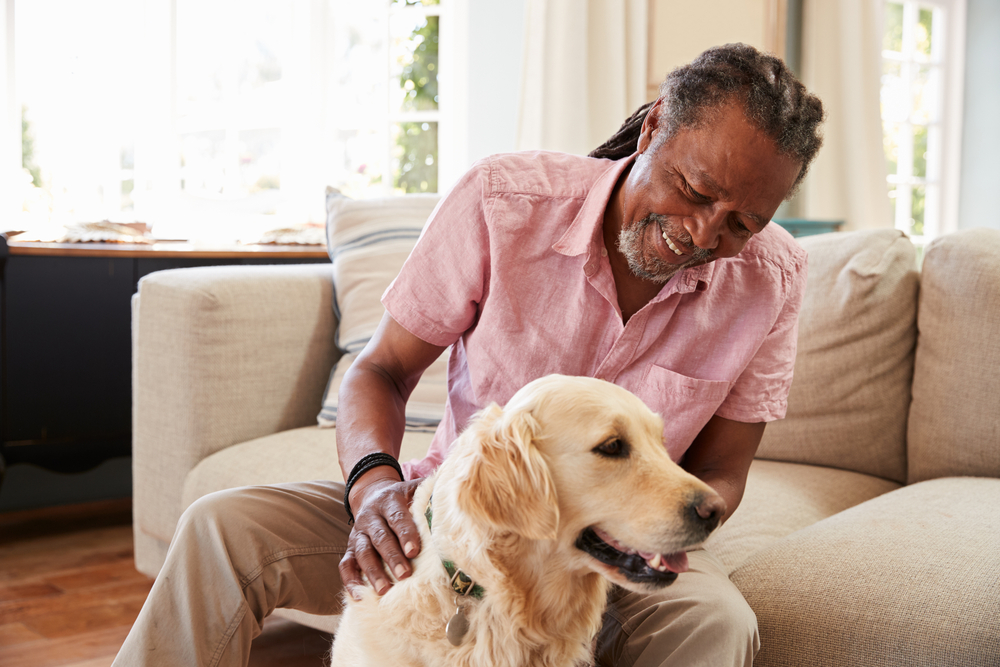When we think of pets, we tend to think of unconditional love and humanity’s best friend. Recent research says that we can also start associating pet ownership with multiple health benefits as well. Whether you’re the proud owner (or parent) of a retriever or a tabby, you could be receiving benefits to your health along with the love, companionship, and miscellaneous fur.
So, what can your pet do for your health and wellness?
Pets Reduce Loneliness
Pets are sources for companionship, and are sometimes considered friends or family, but there are other ways that they decrease our feelings of loneliness. People who walk with dogs versus people who walk without a dog interact more with other people and are more likely to interact with strangers. Apparently, dogs make great icebreakers. Researchers from Psychology Today also found that pet owners tend to be more outgoing and have healthier relationships with other people.
It is certainly okay to be on your own and make time for me, myself, and I. Often when you feel lonely or experience isolation for elongated periods of time is when loneliness affects your well-being. Loneliness can increase your risk for depression, make you lethargic, and interfere with healthy sleeping habits—among many other symptoms.
Pets Give Us a Sense of Purpose
Pets can also increase your sense of purpose in life. Researchers (from the National Center for Health Research) found that elderly people who owned pets had better everyday well being than those that didn’t own pets. Elderly pet owners were better able to do such things as climb stairs, kneel, and make meals for themselves. Researchers found that elderly people who had companion animals, like seeing-eye dogs, did not experience increased well being.
This may suggest that people tend to feel a sense of purpose in taking care of an animal rather than being taken care of by an animal. A lack of purpose in life can lead to isolation and loneliness. Caring for another living being can give you a sense of purpose and a meaning in life. When you have meaning and purpose, you are less likely to feel depressed, isolated, and lonely.
Pets Lower Blood Pressure
Owning a cat or dog does the heart good, literally! A 2010 study was conducted by researchers, at the Oklahoma Cardiovascular and Hypertension Center and the University of Oklahoma, to determine how pet owners and people without pets differed when put in a stressful situation. The result was that pet owners, before the stress was applied, had lower heart rates and blood pressure. Also, pet owner heart rates were less likely to rise, and would return to normal quicker, than people who didn’t own an animal.
Less stress and better stress management feels good in of itself, but there are more than just good vibes with lower blood pressure. Lower blood pressure means less stress on your heart and less risk of heart disease. Lower blood pressure also means you are less likely to suffer a stroke, more likely to have good vision, and more likely to have healthy kidneys.
Pets Reduce Anxiety
While it’s soothing to scratch your pet behind the ears, it’s possible that the effects run a little deeper. In a study that gave children a dog while they were waiting in a doctor’s office, researchers found that when the dog was present, even if the child wasn’t familiar with the dog, they were less distressed than children without a dog present.
Some anxiety in life is okay and even beneficial for short periods of time. However, extended bouts of anxiety affects both your physical and mental health. Researchers at the Harvard Medical School say that anxiety can lead to substance abuse, like alcohol, in order to compensate for the feelings of unwarranted fear and distress. So, warranted anxiety is good for motivating us, while unwarranted and extended periods of anxiety can cause additional health issues.
Having a Pet Increases Productivity
Now, having Fluffy in your life does not mean you’ll pump out the next Harry Potter or exceed your sales goals for the year. Studies published by the National Center for Health Research found that people who owned pets made fewer visits to the doctor’s office. A study on women in China who owned dogs also showed that women owners took off fewer sick days at work.
The researchers in China also found that the women who owned dogs exercised more than women who didn’t own a dog. This extra dose of exercise lead to better general health, which means they are less likely to get sick and require a visit to the doctor’s office. The less time you spend being sick, the more time you have to accomplish your life’s goals.
Pets Possibly Guard Against Allergies
The research surrounding the idea that pets can actually help prevent allergies is mixed. Owning a cat might increase or decrease the likelihood of you having allergies. Whether or not you develop allergies to a furry creature might depend on when you’re exposed to one. A researcher at the University of Wisconsin-Madison found that children who grew up around furry animals were less likely to have allergies and asthma.
The data is still mixed around whether pets help or hinder people with allergies. There is also much that is still unknown about why exactly people might receive these benefits from owning a pet, and whether all pets, be they budgies, pugs, tabbies, or turtles, produce the same health benefits.








